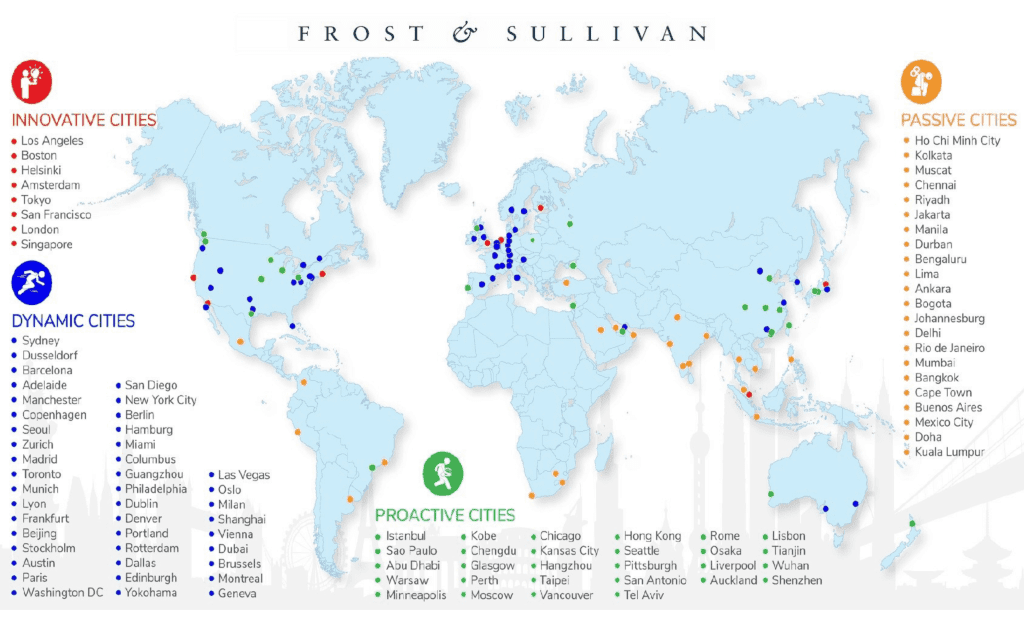A new study places Singapore, London, and San Francisco as the leading cities for smart mobility, rated on over 150 different parameters, covering autonomous vehicles, intelligent transport, and smart logistics.
The study rated 100 cities against six mobility criteria, in total, categorised as: new mobility solutions, autonomous readiness, digitisation, sustainability, smart logistics, and overall smart city outlook.
The top five, ranked for vision and strategy, are: Singapore, London, San Francisco, Tokyo, and Amsterdam. Helsinki, Boston, Los Angeles, Hamburg, and Paris rounded out the top 10.
Of the top 25 cities, almost half (12) are located in Europe, due to the region’s commitment to green technology, integrated transport options, and takeup of noted said Frost & Sullivan – although, actually, all of these nine are in the US, itself. Frost & Sullivan put this showing down to strong performance in its autonomous readiness and digitisation segments.
Four cities are located in the Asia Pacific region, scoring well for stringent car ownership and parking policies and efficient public transport.
At the same time, there was a long way to go, the research makes clear. None of the 100 cities studied achieved a score that would qualify them to be termed as“leaders” in every aspect of smart mobility solutions, said Frost & Sullivan, despite ranking eight of the 100 as ‘innovators’ in the field.

This undelrines “the huge, untapped potential of smart mobility,” it said. Public-private collaborations around new operating models, car usage, multimodal journeys, and payment options will drive innovative mobility models, particularly as-a-service initiatives in cities, it said.
Shwetha Surender, mobility industry principal at Frost & Sullivan, said: “Vehicle occupancy rate is approximately 35 percent to 40 percent in cities, but shared mobility can improve vehicle utilization by 85 percent, which will not only decrease on-road vehicle miles travelled, but also relieve congestion and free up 20 percent of street space used for parking.”
Franck Leveque, partner and mobility business unit leader at Frost & Sullivan, said: “Autonomous vehicles can simultaneously reduce road accidents to zero and bring down travel costs by 30 percent by decreasing congestion and eliminating the need for human operators. Overall, autonomous vehicles can potentially lead to a 4 percent savings in the gross domestic product.”
Frost & Sullivan’s web-based ‘smart mobility tracker’ says rapid urbanisation, vehicle density, ageing infrastructure, and transportation-related emissions are increasingly stressing the urban mobility ecosystem. One in twelve people in the world lives in the cities, it notes, and they account for nearly 15 per cent of the global vehicle population of 1.3 billion, resulting in a cost burden of more than $300 billion related to congestion, and almost 20 per cent of transport-related greenhouse gas emissions.

